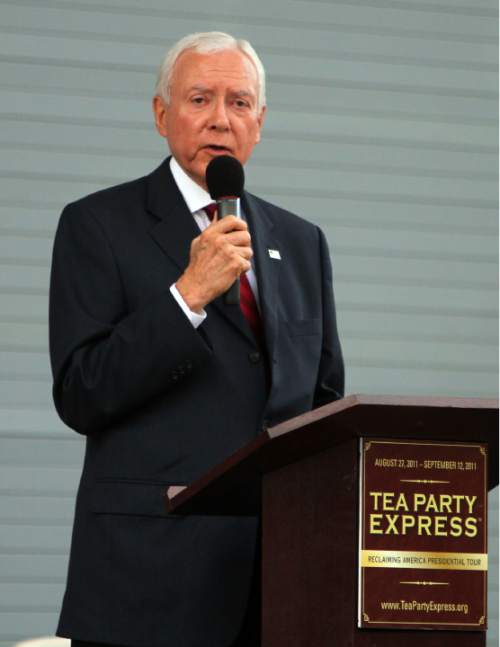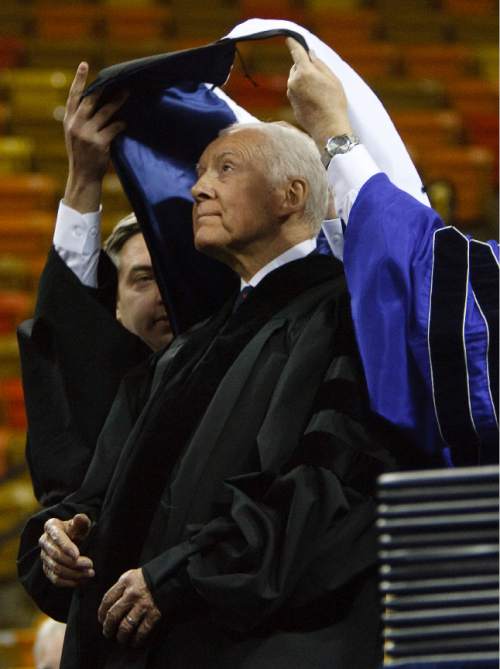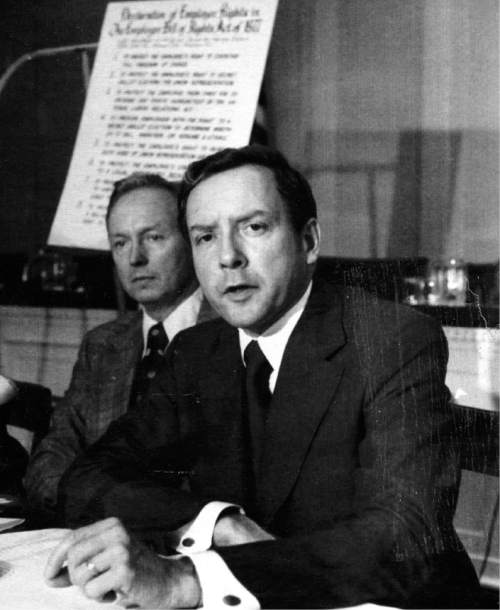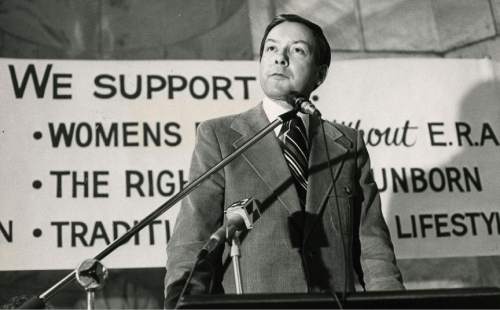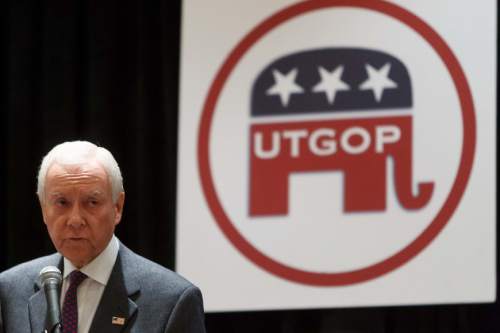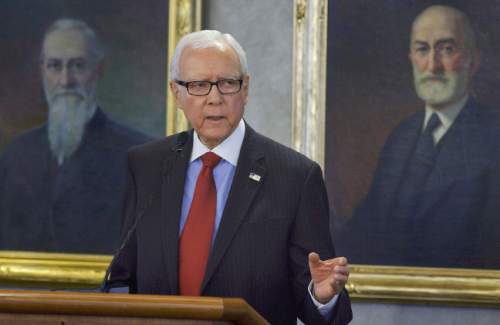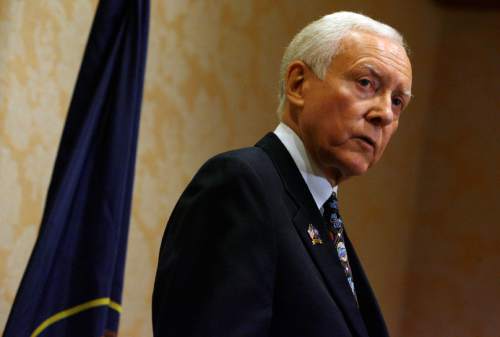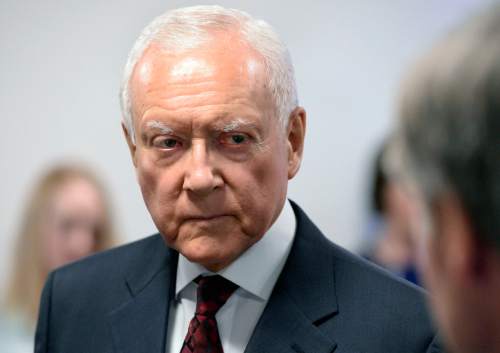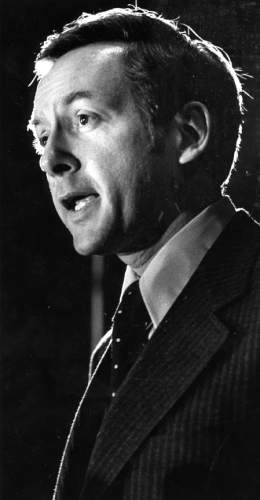This is an archived article that was published on sltrib.com in 2015, and information in the article may be outdated. It is provided only for personal research purposes and may not be reprinted.
Sen. Orrin Hatch has said he won't seek an eighth term in office, but he's sure raising money like a politician with an eye on 2018. The Utah Republican pulled in $686,500 in campaign donations in the past three months and has more than $1.5 million in his account.
Asked Tuesday to reiterate the 81-year-old senator's retirement plans, Hatch's chief of staff Rob Porter had no comment.
Instead, Porter said Hatch, who was re-elected in 2012 saying it would be his last term, remains focused on "advancing his legislative priorities" as chairman of the Senate Finance Committee and Senate president pro-tem (the most senior senator and third in line for presidential succession). As for the fundraising, Porter said: "He continues to raise money for his colleagues and his own campaign committees and has given generously to support GOP candidates."
That's true, but...
"You can't even give that much money away," notes Matthew Burbank, a political scientist at the University of Utah. Hatch has already maxed out on donations to the National Republican Senatorial Committee and the 24 incumbent Republican senators up for re-election in 2014, including Sen. Mike Lee, R-Utah.
He could find other candidates to contribute to, but he'd be hard pressed to unload nearly $700,000.
"There is not really a compelling reason to raise all that money, unless you are thinking of doing something else with it," said Burbank. "The obvious thing would be thinking about running for re-election, despite what he said last time."
After several easy elections, Hatch's 2012 race began as a slog. Tea-party Republicans wanted him out and many mainstream Republicans thought it was time for a fresh face after 36 years.
Hatch beat former state Sen. Dan Liljenquist to win his party's nomination through a $10 million effort to get his supporters elected as party delegates and a big media campaign. Part of his message was that this would be his final campaign.
"I've said it will be my last term," he said in 2012, "but I want to make it the best six years anyone's put in for Utah."
First elected in 1976, Hatch is Utah's longest serving member of Congress in history and when his seventh term comes to a close in January 2018, he will have spent half of his life — 42 years — in the Senate.
This most recent term has been quite a cap to his long career. Hatch has relished his Finance Committee chairmanship that gives him a key role on tax and health-care issues. He's also taken it upon himself to be a vocal defender of the Senate as an institution. His position has made it easy to collect money from political action committees tied to big financial institutions and medical companies, not to mention organizations ranging from O.C. Tanner in Utah to the National Football League.
Some of his close friends insist Hatch is raising money mostly to support other Republicans.
They also note that if he leaves office with money, he could use it to transfer his considerable papers to a library and to keep supporting conservative causes.
They acknowledge that if Hatch does decide to run again, it would be a tough race.
Burbank agrees. "There would be substantially more resistance than last time."
And yet, Hatch has clearly not closed the door on that possibility.


